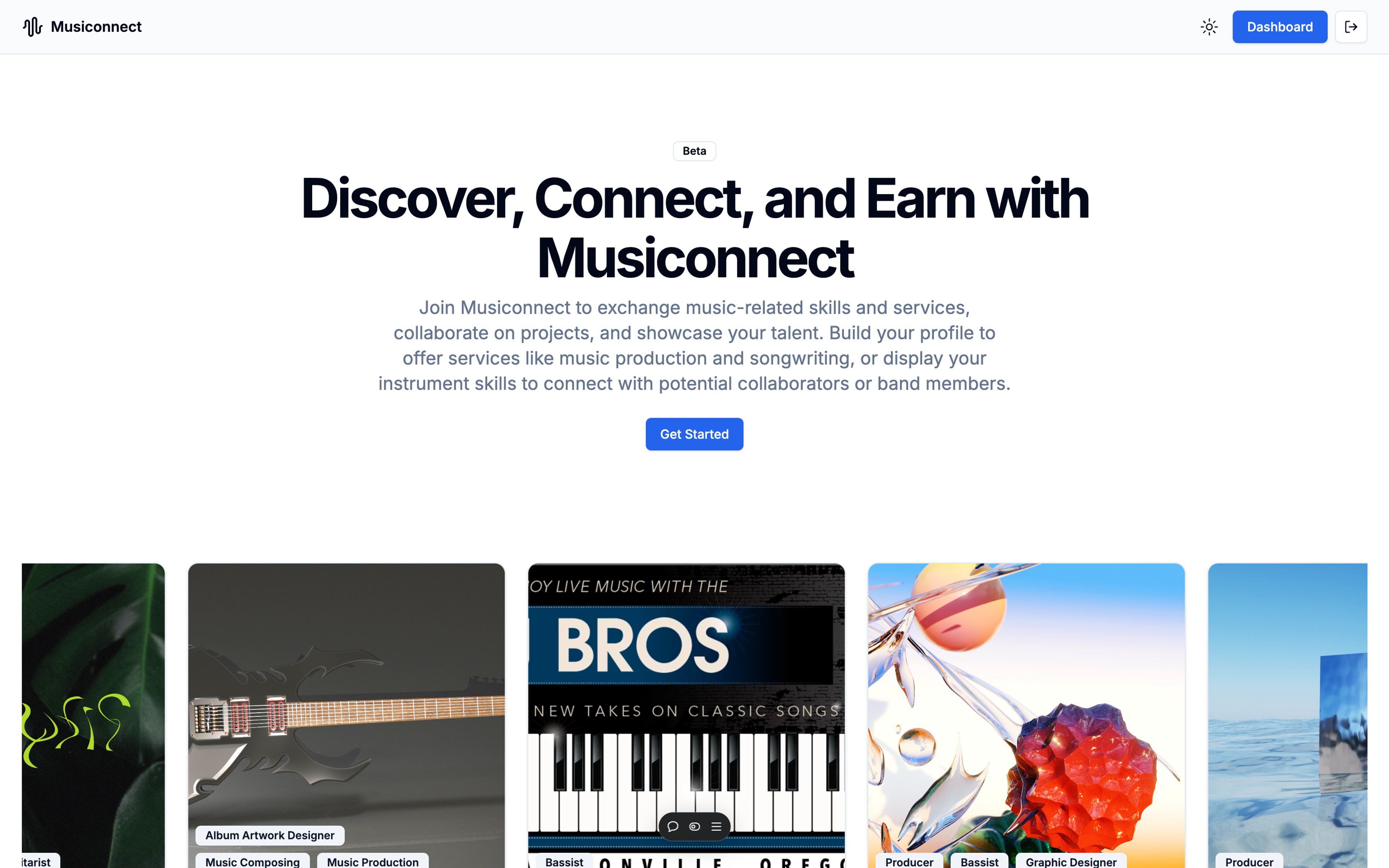Lessons from Building a Social Media Platform for Musicians
My Journey Toward SaaS Development in 2024
One of my goals for 2024 was to create and launch multiple SaaS web apps. After finishing a refreshed version of SeaitX, I picked an idea that I thought could be genuinely useful for people in the same situation as me: a social media and skill/service exchange platform for musicians and music-related professions. I also saw this as a chance to learn how to build a chat platform and create a foundation I could potentially reuse for another project lead (Wildfire) later.
I went with a familiar stack: Next.js with Firebase Auth and Firestore as the database. In just a couple of weeks, I had an MVP ready.
At that point, I was planning to prepare for launch and start getting traffic and users. But since it was still summer break, I decided to use the time to build another web app before my studies started again. So, I built a simple AI wrapper called AI-gen.meme—and repeated the same mistake I made with Musiconnect.
When I finally got around to launching Musiconnect, I asked a friend of mine, who’s a music producer, if the platform would be useful and how he usually finds collaborators. That’s when I realized I’d done things in the wrong order. He told me that finding collaborators through social media wasn’t a problem for him at all. This left me pretty demotivated because it made me question whether anyone would use the platform. Even though I’d planned to build a version of it anyway (mainly as a starter template for other projects), I could have saved a lot of time if I’d just asked him—and other potential users—before I started development, not after.
But I didn’t want to give up just yet. I decided to ask in a local Facebook group for musicians whether my project was useless or if it had potential. I also asked for feedback or ideas for features that could make it more useful. The response was surprisingly good. The post got more engagement than usual for that group, with a few detailed comments about features they’d like to see. I even got two people to sign up for the demo platform, which was a decent result compared to the group’s average engagement.
The feedback showed me that the most promising direction was to focus on helping users earn money by offering services through their profiles.
A couple of weeks later, I pitched the platform again in the group. This time, I didn’t focus on what it already had but on what I planned to build if enough people showed interest. While this post didn’t get as much engagement as the first, it still brought in two more sign-ups, which gave me a bit more confidence that there might be something here.
In 2025, I’m planning to post the MVP in more social media groups to either validate or invalidate the idea further. If the results are disappointing, at least I’ll have learned a lot—both about the technology I used and the importance of validating ideas early. But if I see real interest and more users signing up, I’ll pitch the platform to my network in the music industry to see if I can grow it even faster.
